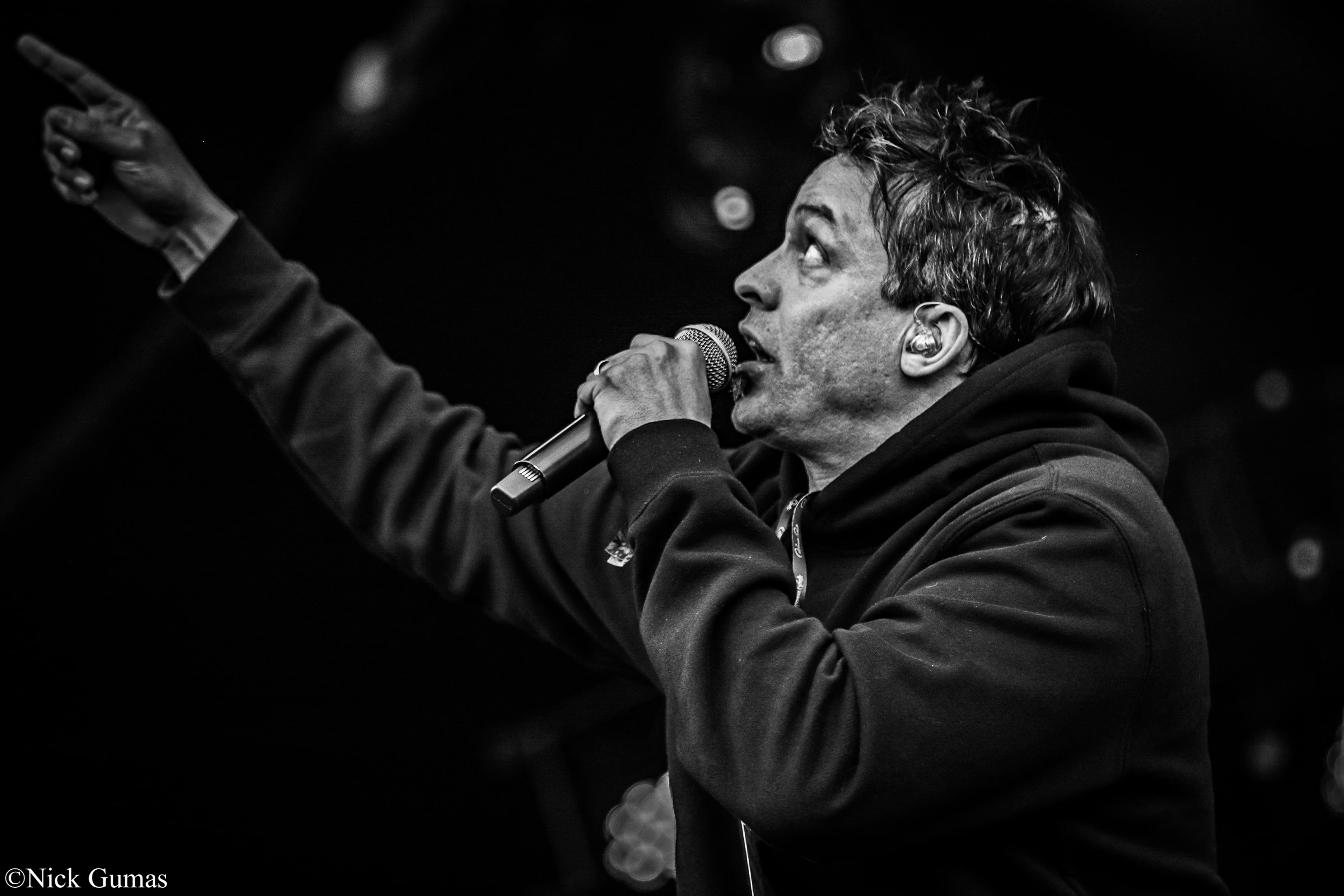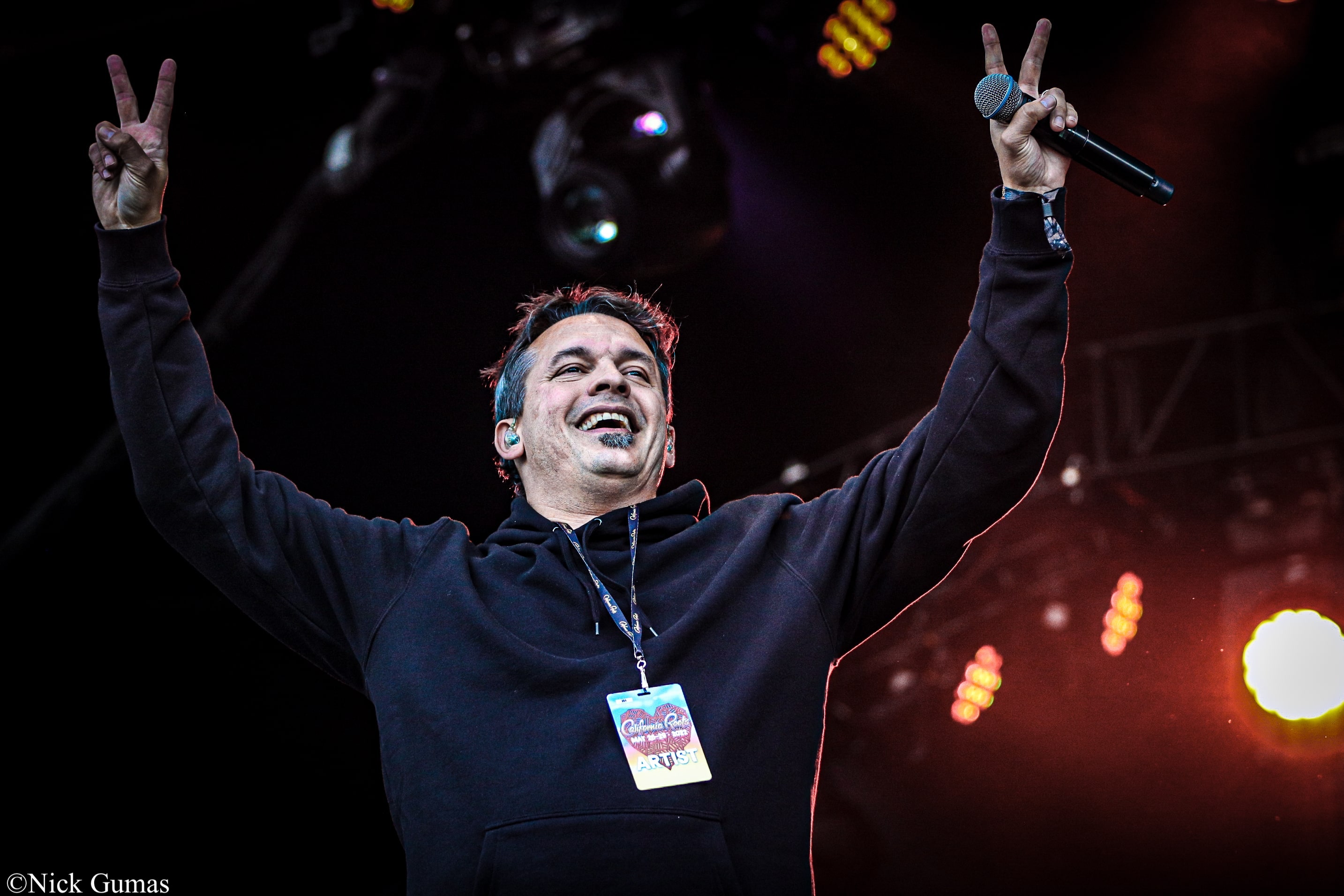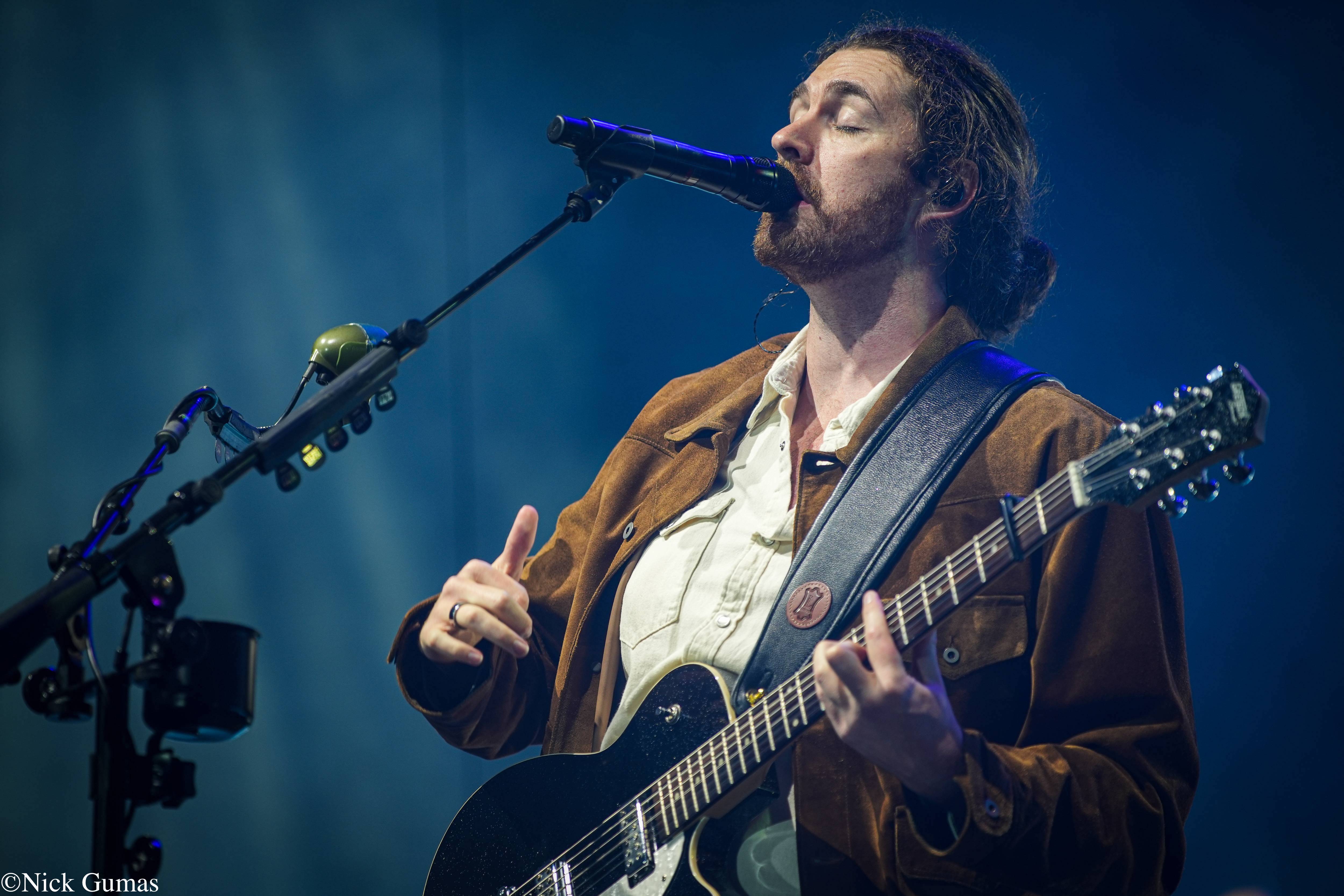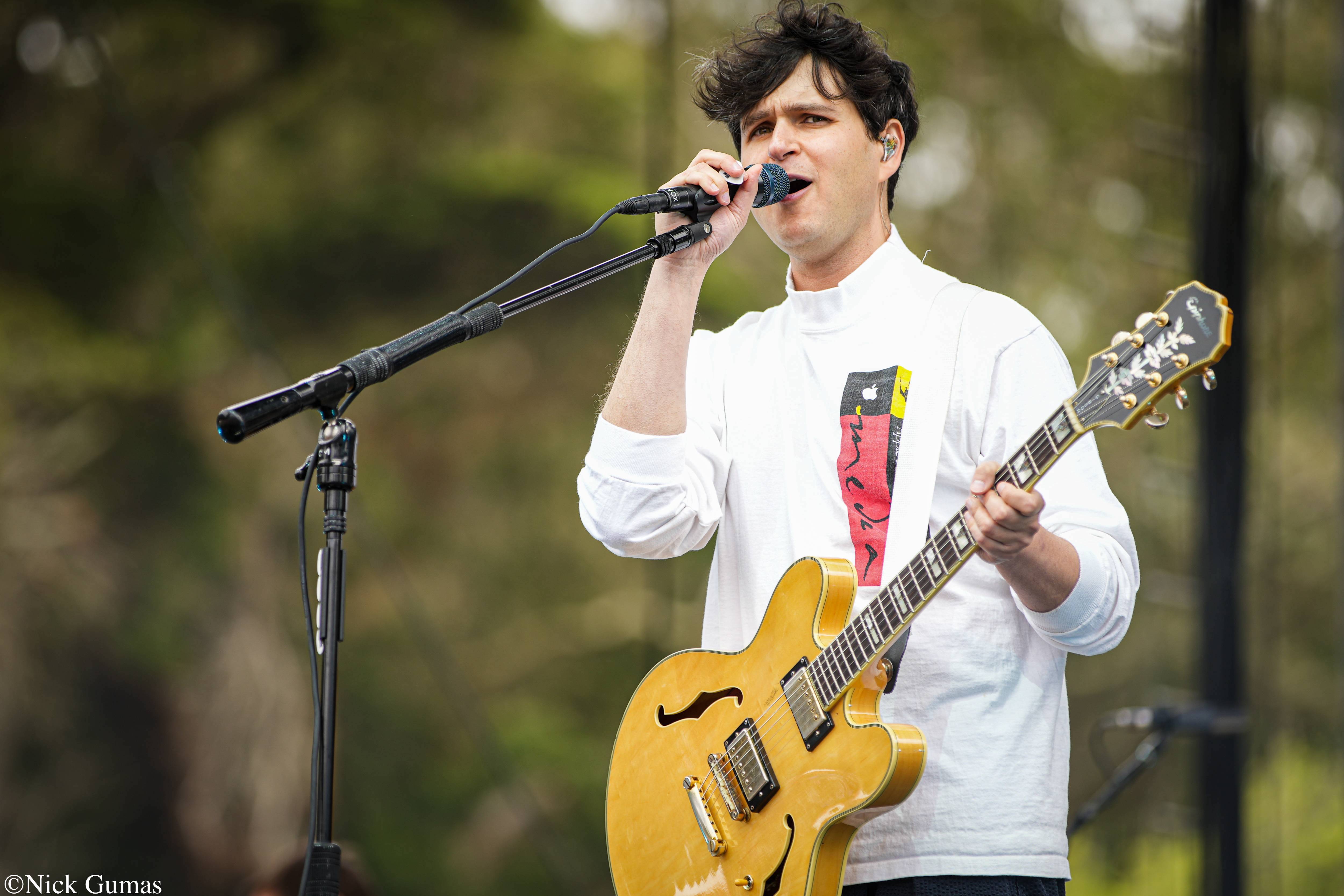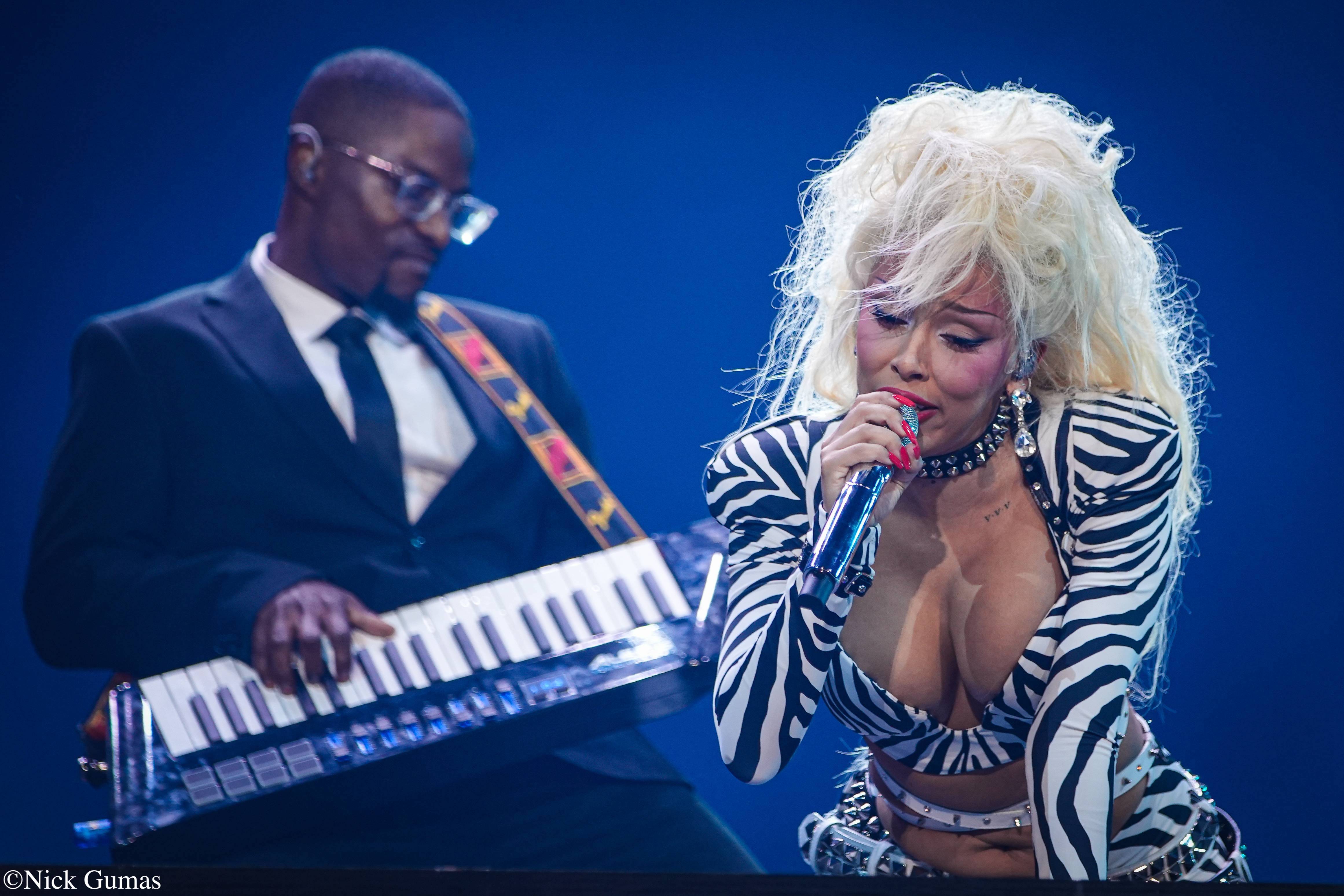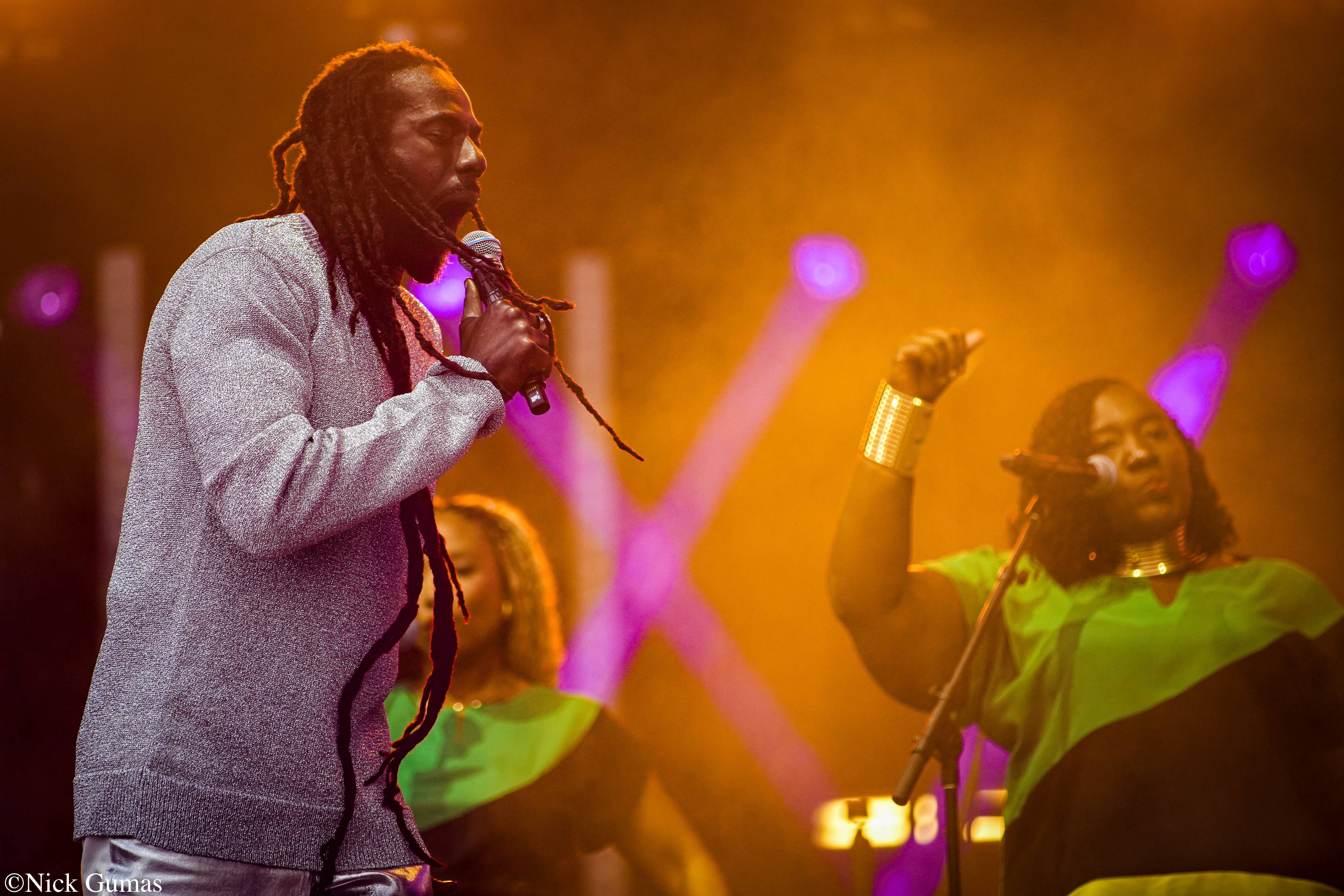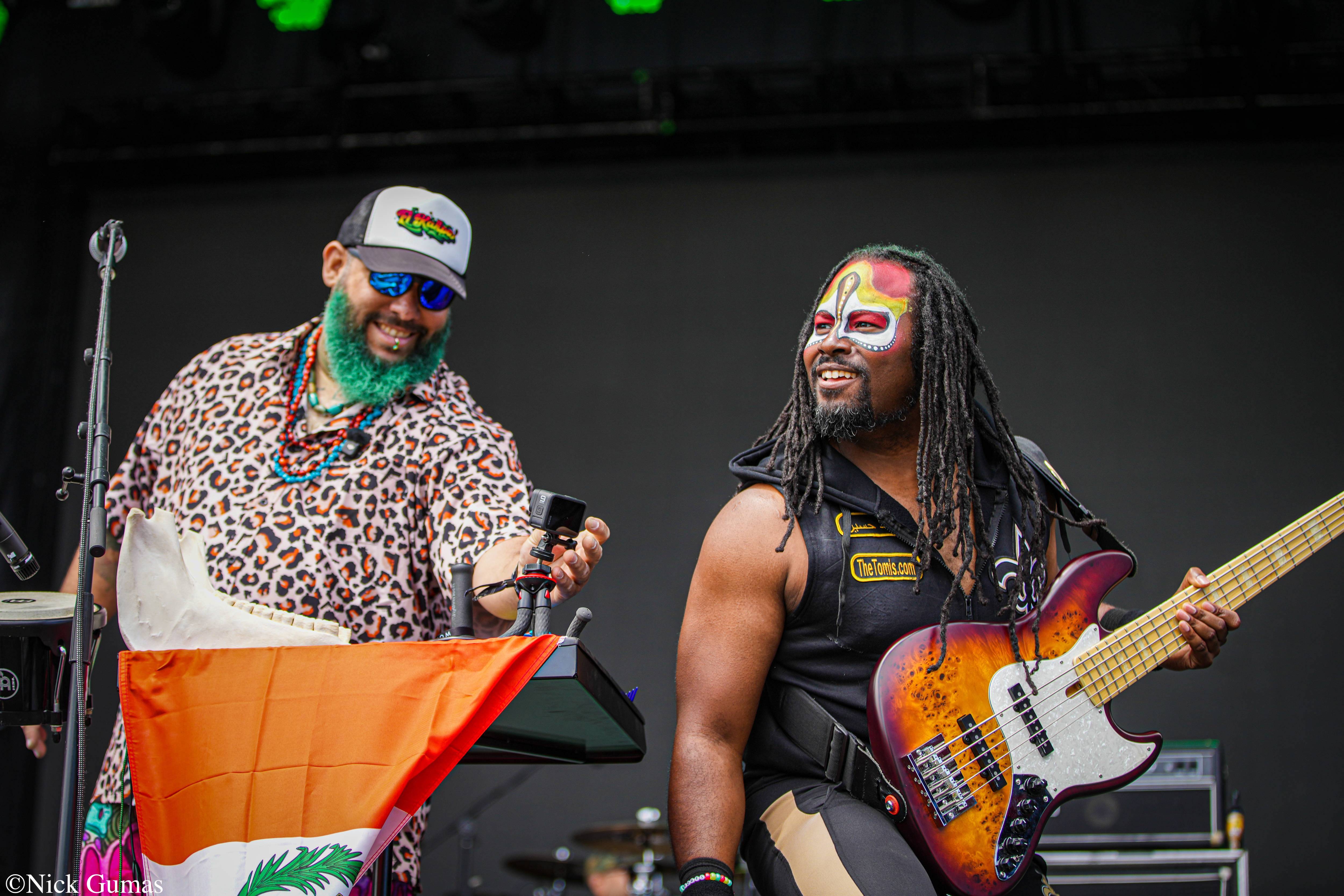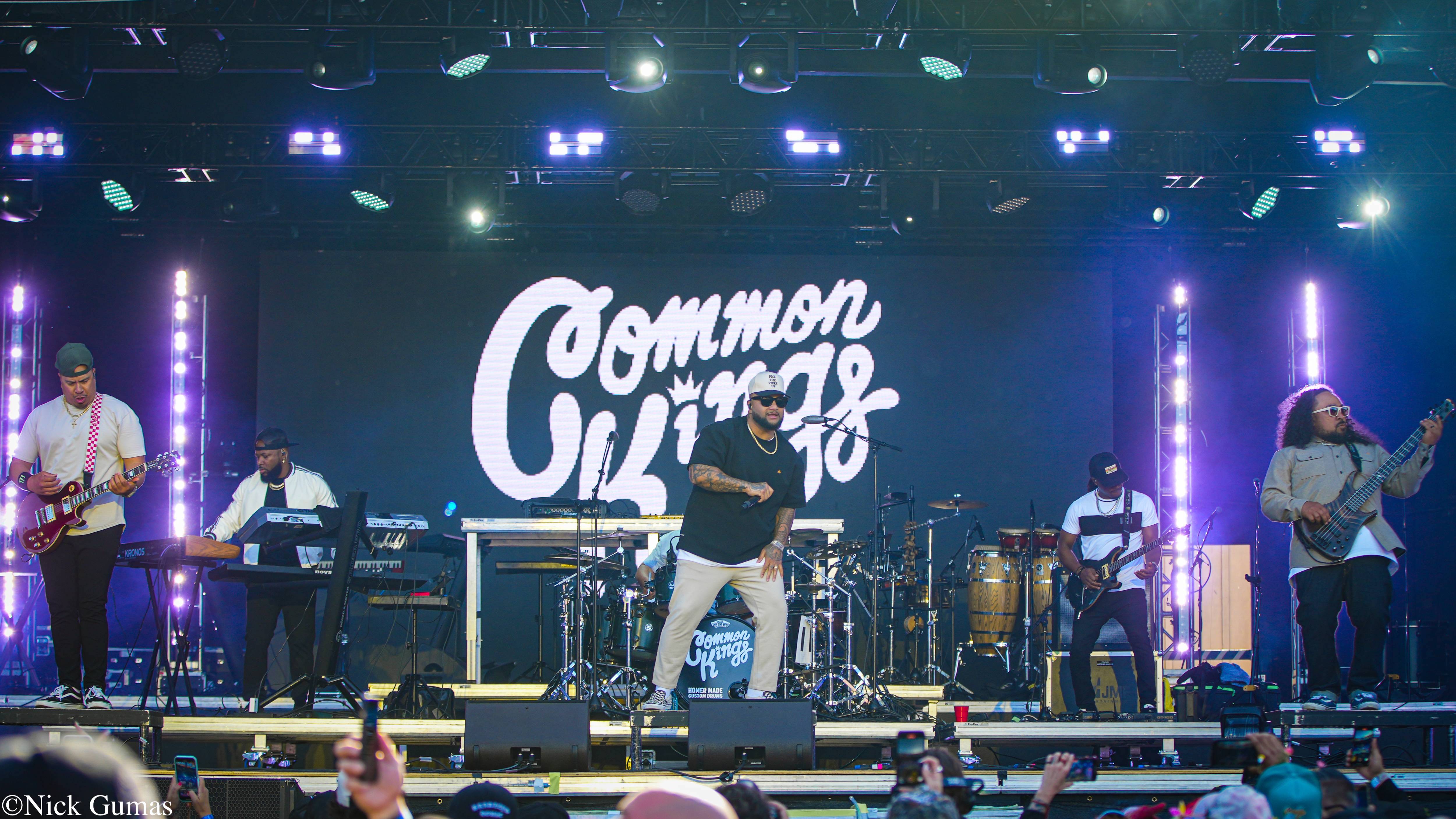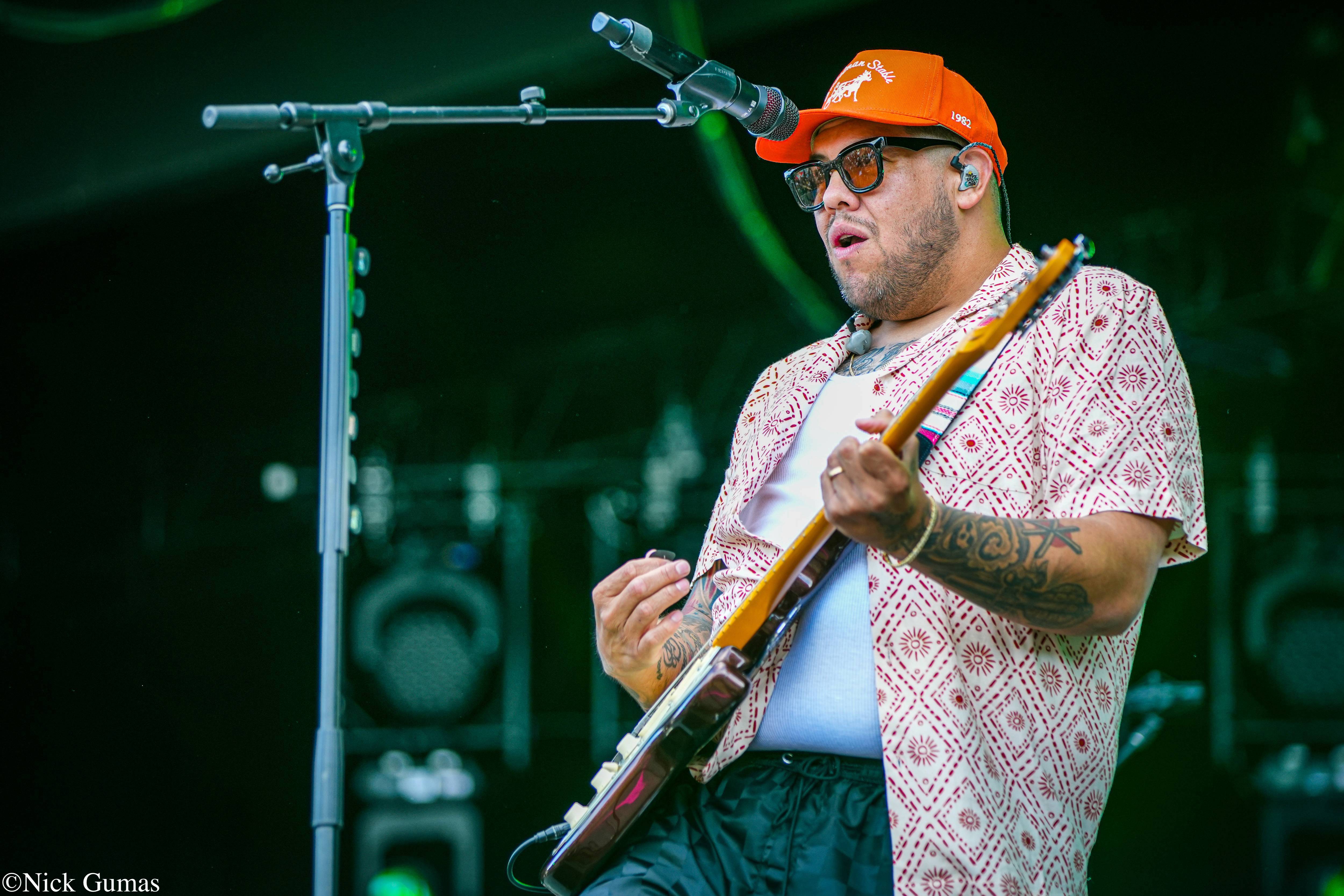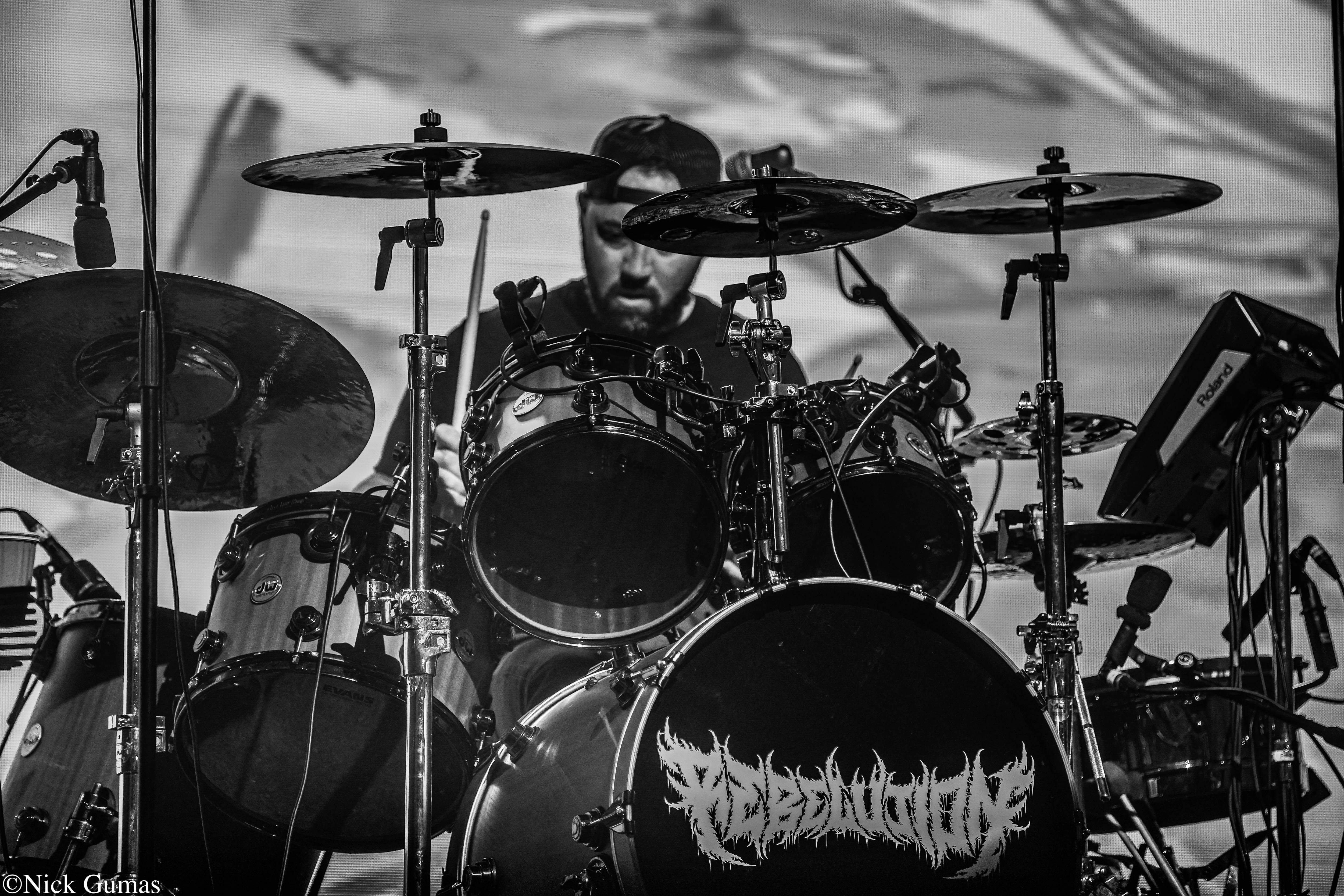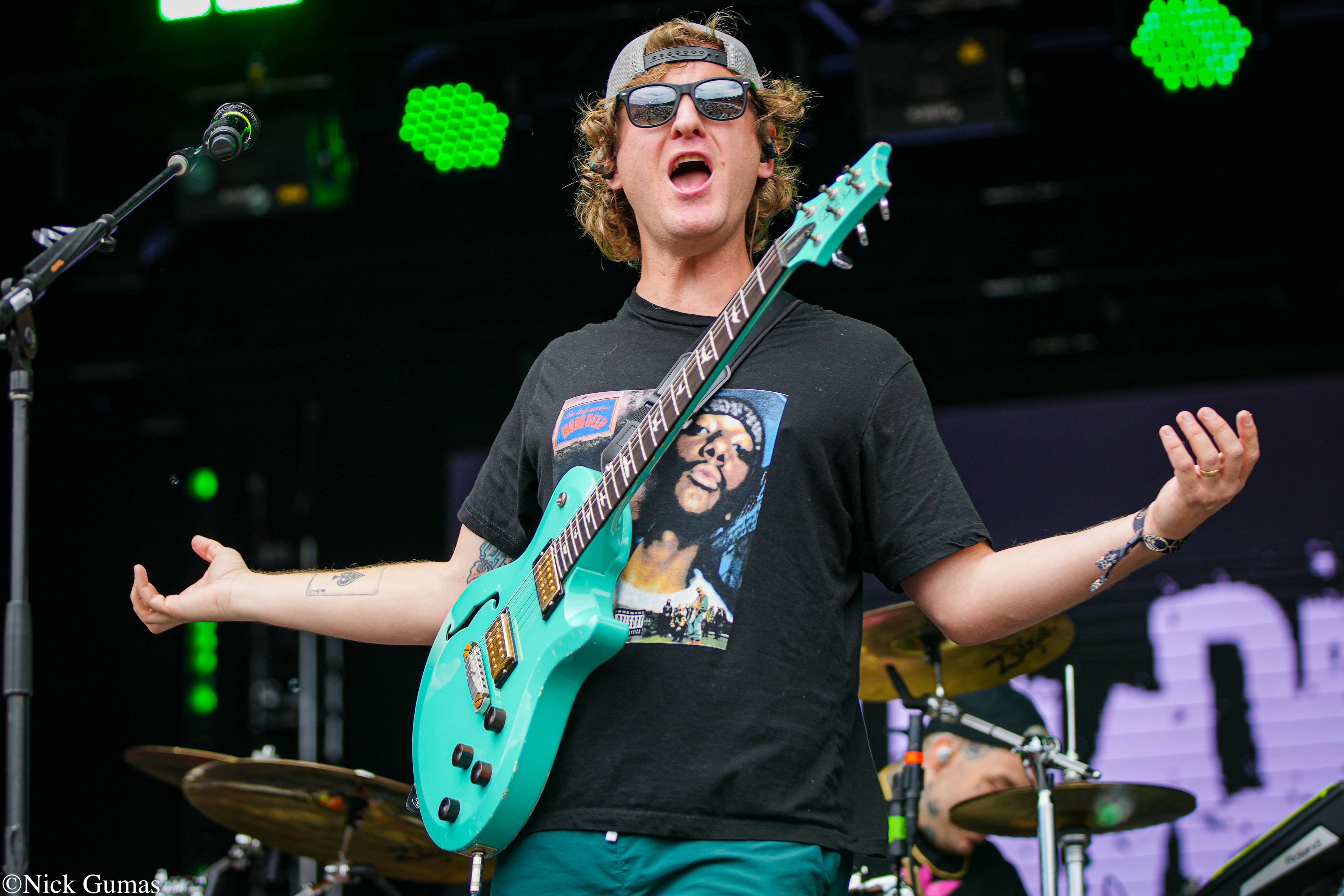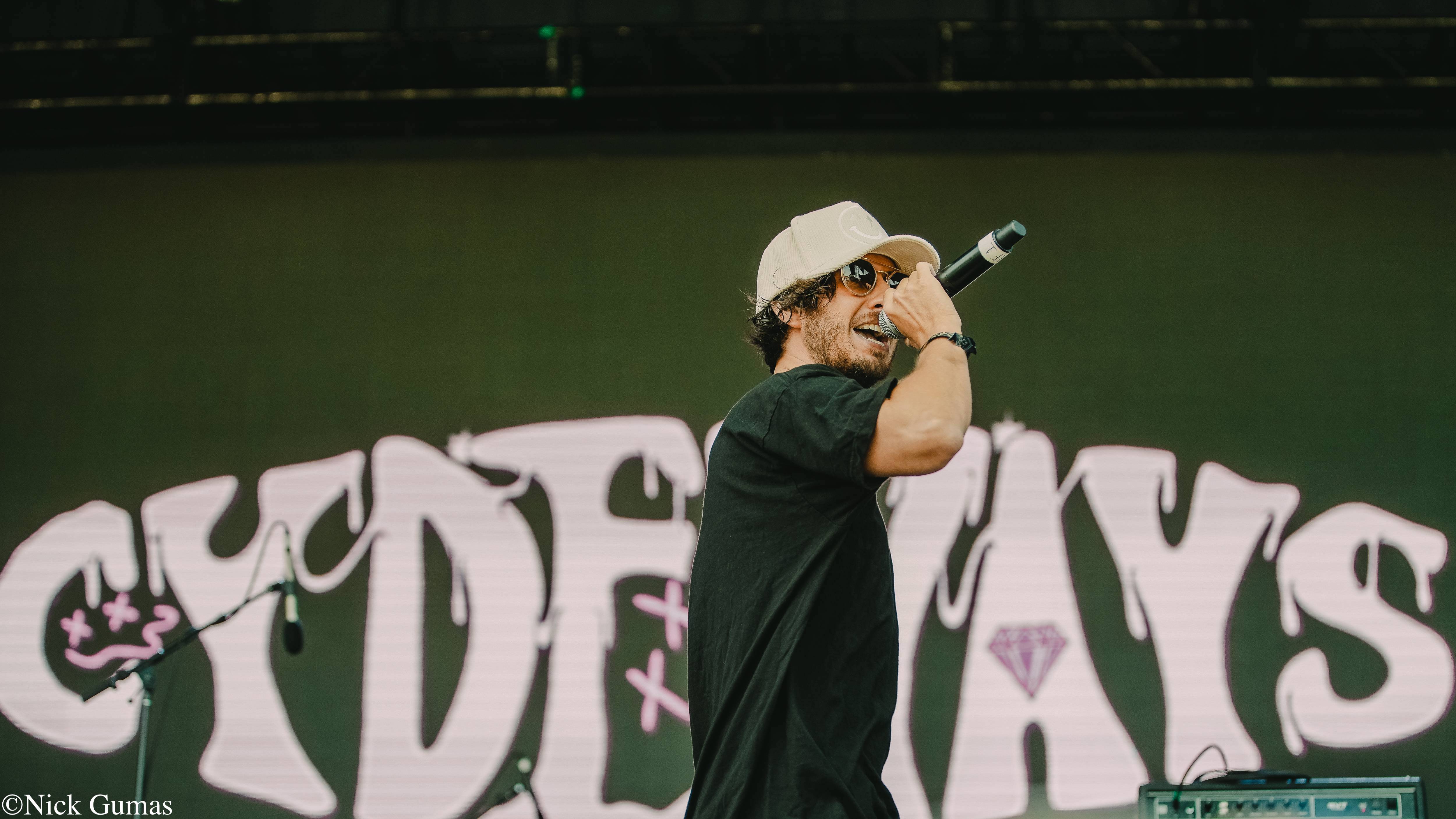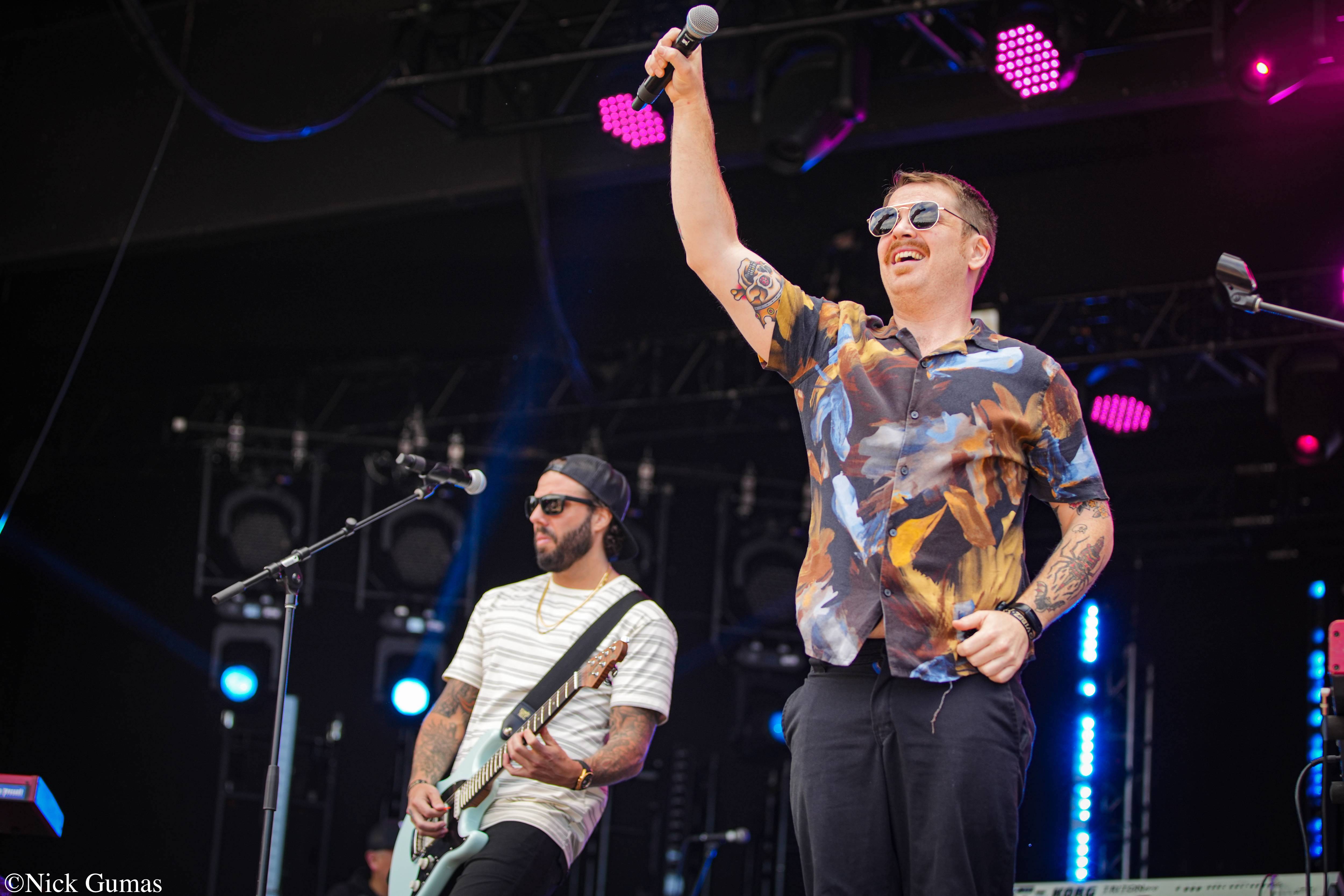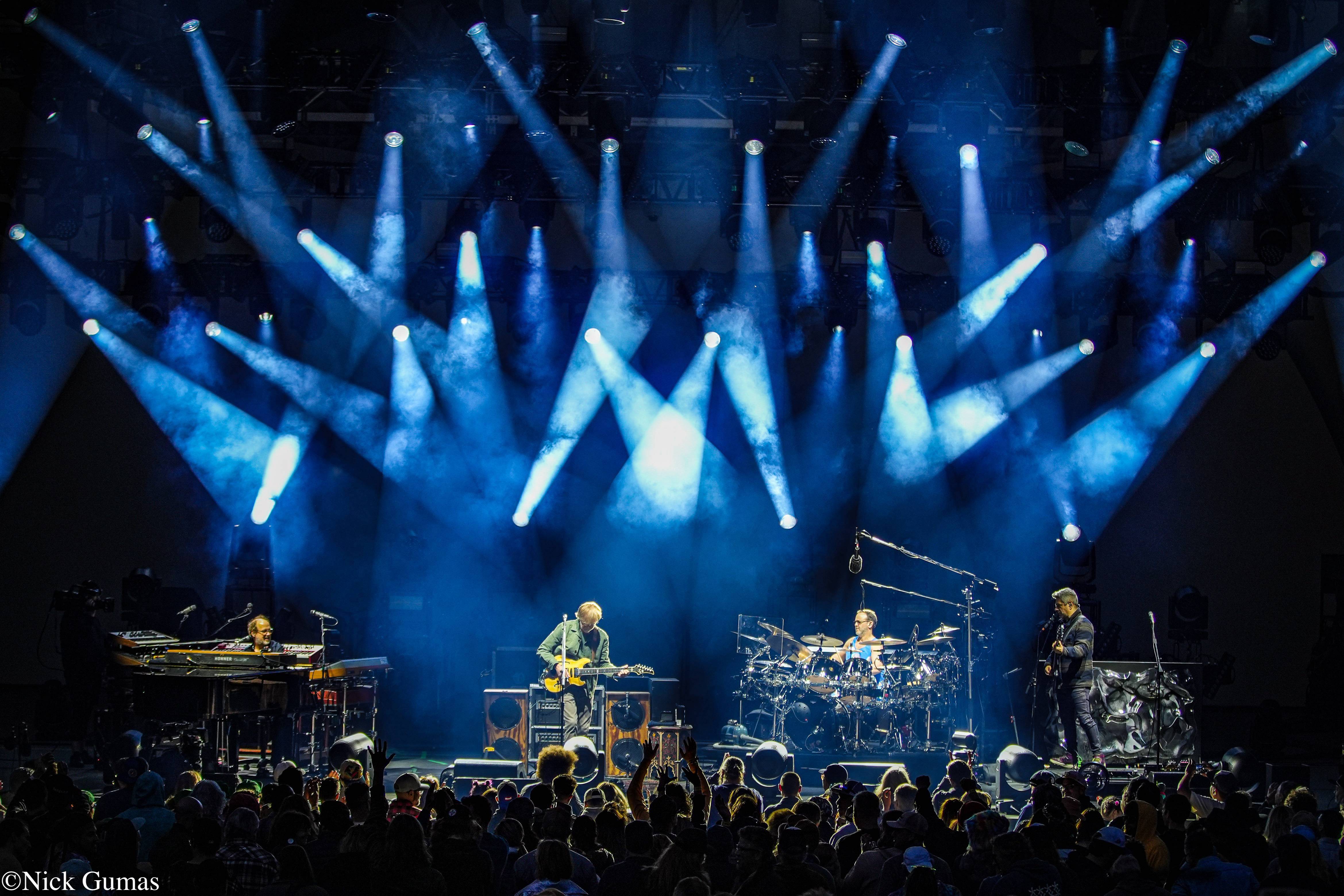Frontman of the Midwest hip hop group Atmosphere, Sean Daley, or "Slug" as he goes by on stage, is a rare breed in the sense that seems to wear his heart on his sleeve and has the perspective to allow himself to be his own person rather than a manufactured image of an onstage persona. Sean carries himself with a sobering energy that reflects his sincerity in how he sees the world and communicates with a level of genuineness and empathy that is refreshing to see in an artist of his tenure. His lyrics are uniquely vulnerable and offer a real opportunity to allow fans to connect to his songs on a molecular level, their message allowing them to, as Sean puts it “hold (them) dear to themselves.”
Grateful Web had a chance to sit down with Sean at this year’s Cali Roots festival to get to know him a little bit better and see how the last few years have taught him about his industry, what they have taught him about being a better father, and how his relationship with validation has evolved over the course of his career.
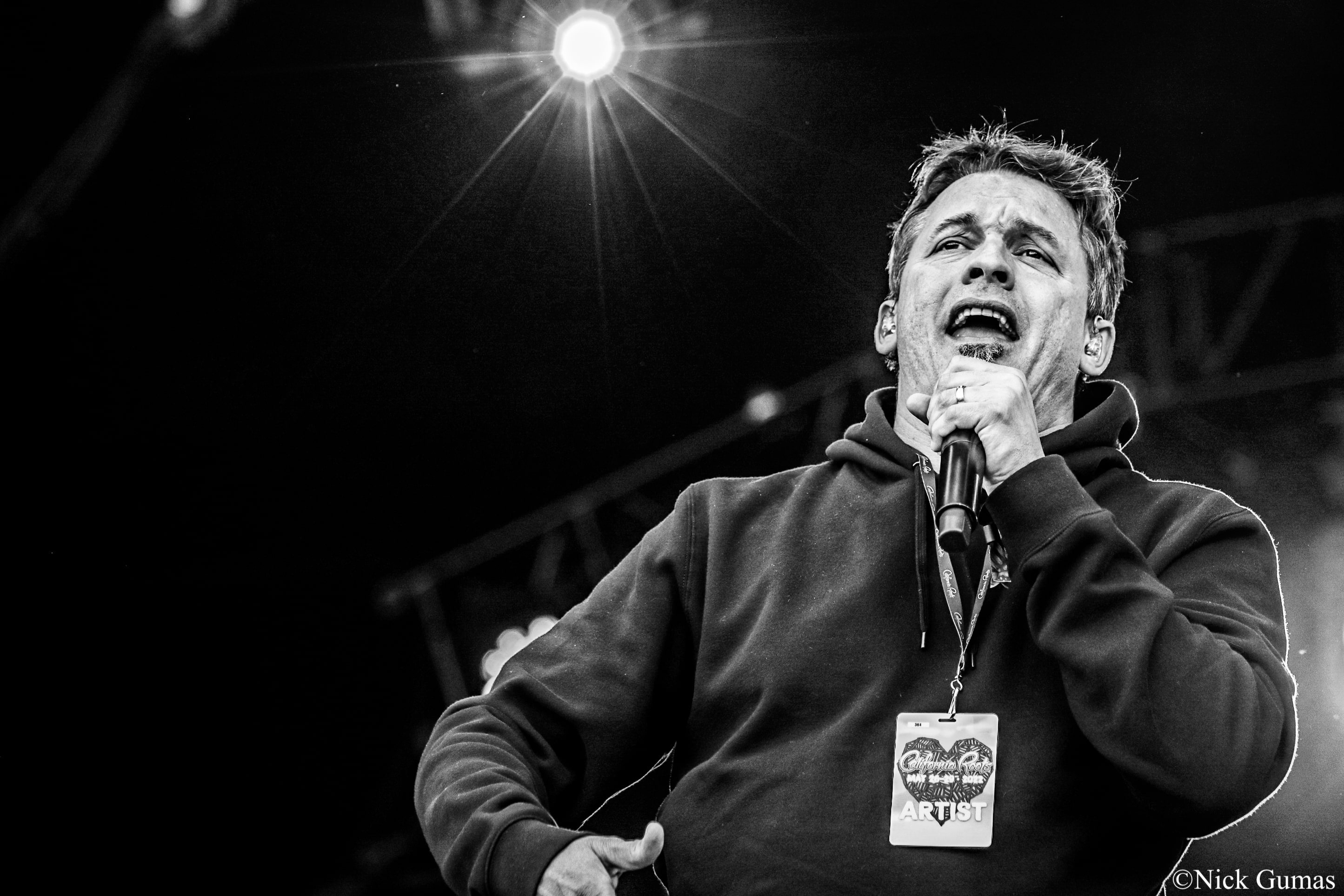
Grateful Web: So this festival features a lot more hip hop music than a lot of people would expect at a reggae festival. Why do you think rap and hip hop play so well to reggae fans at Cali Roots?
Sean Daley: I believe rap and hip hop come from the same place as reggae in all honesty. It’s all about the bass and the drums, and so I think there is a specif correlation to our hearts, the drums specifically mimic our heart beats, so when I hear or see people dance to reggae, and then I see people dancing at our set, it’s the same dancing, you know what I’m saying? It’s the same vibe, it’s the same feeling, and you can even, I know Ice Cube is playing here, and Ice Cube and Atmosphere are very different as far as rap goes, but the thing that binds me and Ice Cube together are the drums. And honestly, all of this came from Jamaica to keep it real. I think that it’s been well documented that the beginning of hip hop in the Bronx, and I’m not talking about the beginning of rapping, but the beginning of hip hop in the Bronx was something a DJ named Kool Herc had brought over from Jamaca. The first soundsets that were happening in the Bronx were based off of something that he was seeing in Jamaica with the different sound clashes.
GW: I don’t think any rational person could argue we’re just coming out of the two worst years in modern music history. Walk us through what the pandemic was like for you. The first couple of weeks, the uncertainty throughout, how you stayed productive, whatever you feel comfortable sharing.
SD: I gotta say, you’re right, Covid was obviously a huge blow to the music industry, a huge blow to artists of every industry, it was hard for art, but I also think that tragedy and difficulty is the breeding ground for amazing art to be born, so I kept that on the back of my mind throughout Covid, what kind of amazing music is going to come out of this? There’s all these artists that are stuck at home, and they’re scared and they’re nervous, what are they creating right now. Very similar, there were people that work at bakeries who were stuck at home, I was wondering “what are they creating right now?” For me, I was pretty privileged. I have a gang of children, and a few of them are school-aged, so I just kinda like side-stepped into being the distance learning coach for my children. I took the studio and transformed it into a little schoolhouse, and we would wake up every morning and drive over to the studio and start school up. I would sit with them until they got their lesions going and then I would come up and make lunch, and then I’d make sure they got back into their lessons, or we would go outside and throw a ball around and make sure there was some sort of recess or some sort of activity and then they’d go back to their lessons and I’d go back to my writing. Again, I was pretty lucky and fortunate for me to do that. Then the other side of it, for me, there was a silver lining because since I started having children, I had not ever had the opportunity to spend that much time with them because I would tour every year. I would spend anywhere from six to 20 weeks on the road, depending on the year, so I was actually like the missing parent for many of their years, so for me to have a full year and change to be able to hang out with them in such a focused way, and for to really learn more about who I am as a person and how anal I can get about organization, you know what I’m saying? They got to learn about their dad and I got to learn a lot about their personalities as children, and so I honestly, just me, would not give that back for anything. I can imagine many people don’t have that same story as far as Covid, but for me, I would not change a thing about what happened.
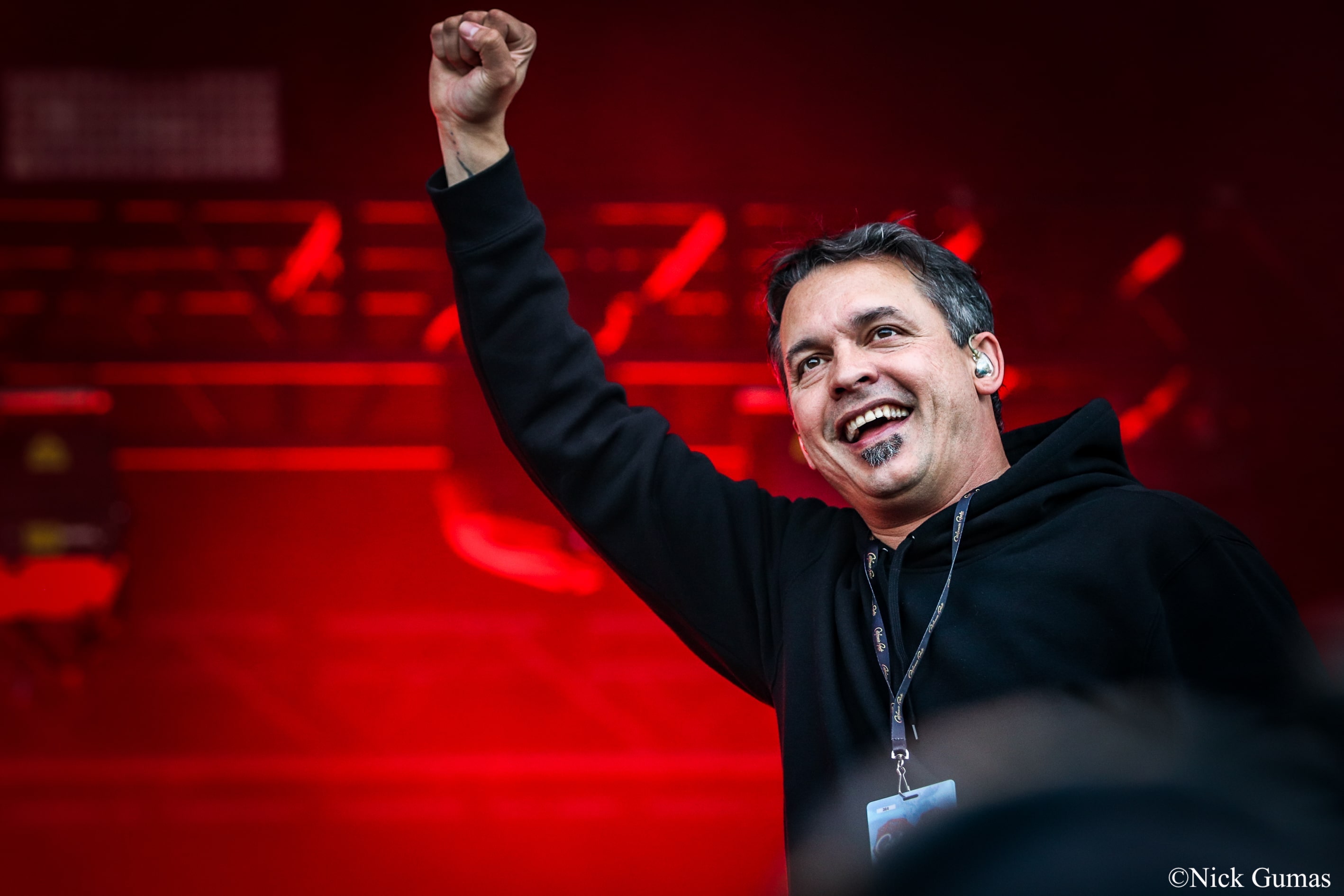
GW: How do you think the pandemic changed music forever?
SD: Well I think, for one thing, I think that the pandemic changed music forever because it showed us how fragile our ecosystem truly is. How when it shut down, it broke everybody. It broke the people in the venues and the people who worked there. It broke the people at the booking agencies, it broke the artists, it broke everybody, and everybody, I think, now knows what it feels like to be artistically insecure, financially insecure too, the whole world got to see that, but artistically insecure. Which I think is important, you know, because there is a whole part of this world that is stuck in financial insecurity forever, and there is a whole part of this world that is stuck in artistic insecurity forever, so when you took some of the people who were living that lavish life or as artists go, on top of the world and you scared everybody about what's coming next, and when will things get back to normal, I think that it maybe evened the playing field, at least in an emotional sense and it took all of us and made us realize we are all the same. It didn’t matter if you’re the guy from Metallica, or if you’re the guy from the band that lives in the house next door, because everyone was scared.
GW: What was your first show post-lockdowns?
SD: Post-lockdowns we did a tour. We went on tour in August of last year. We booked a whole outdoor tour with Cyprus Hill. It was amazing because Delta was like chasing us, and we all got through the tour, nobody got sick, we all lived in a bubble. We weren’t allowed to hobnob with anybody outside the bubble, we stayed in the bubble, and it was a lot of fun, man. Kicking it with my own crew and hanging out with the dudes from the Cyprus crew, and Z-Trip was with us, and it was a lot of fun because it felt kinda like rap summer camp.
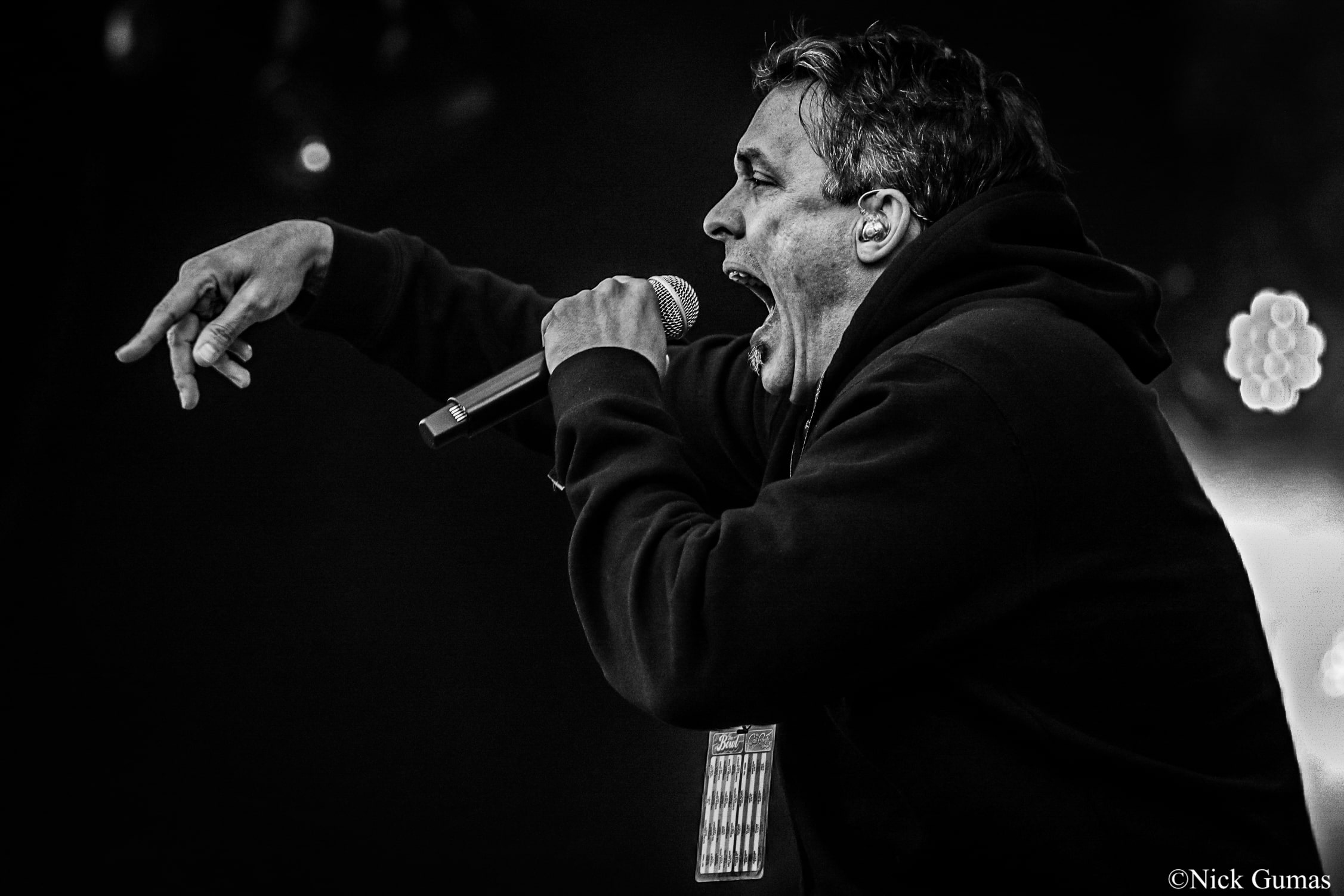
GW: What’s one of your favorite paintings you’re done lately?
SD: I don’t title the paintings, but the one with the purple and the silver is probably the best one I’ve done in a long time.
GW: So last night I was pacing around my room listening to “God Loves Ugly.”
SD: Oof, you have my condolences.
GW: Not at all. But it got me thinking, so much of your music has always dealt with the idea of how we are judged, how it affects us, our self image, and I’m wondering, how has your relationship with validation evolved throughout your career?
SD: My relationship with validation. I think validation is tied to, I want to say inspiration, but it’s tied to a goal, and so when you reach a goal, you can do the dance in the end zone and spike the football, or you can hit that goal and then look up and see the next goal and just keep running with the football. What if a football player did that? What if he hit the end zone, and instead of dancing and spiking the ball he just kept running and jumped over the thing and ran up the stairs and ran out the door, and just kept running. To me, that’s what I see validation as. You never quite, it’s not there, it’s not a real thing. It’s this carrot that dangles in front of you that you run toward, but the minute you catch the carrot and you eat it, you realize that you gotta keep going, so you have to set the next carrot up. My relation to that over the years is just probably, I would say, when I was younger I just wanted to be heard and understood, and then as I got older I wanted to be able to provide and so I needed resources, and then as I got older I wanted to feel that unconditional love that comes from family, and now I’m older and I’m back to just wanting to be heard and understood, so I don’t really know, it just keeps moving, you just keep setting the carrot a little bit further out.
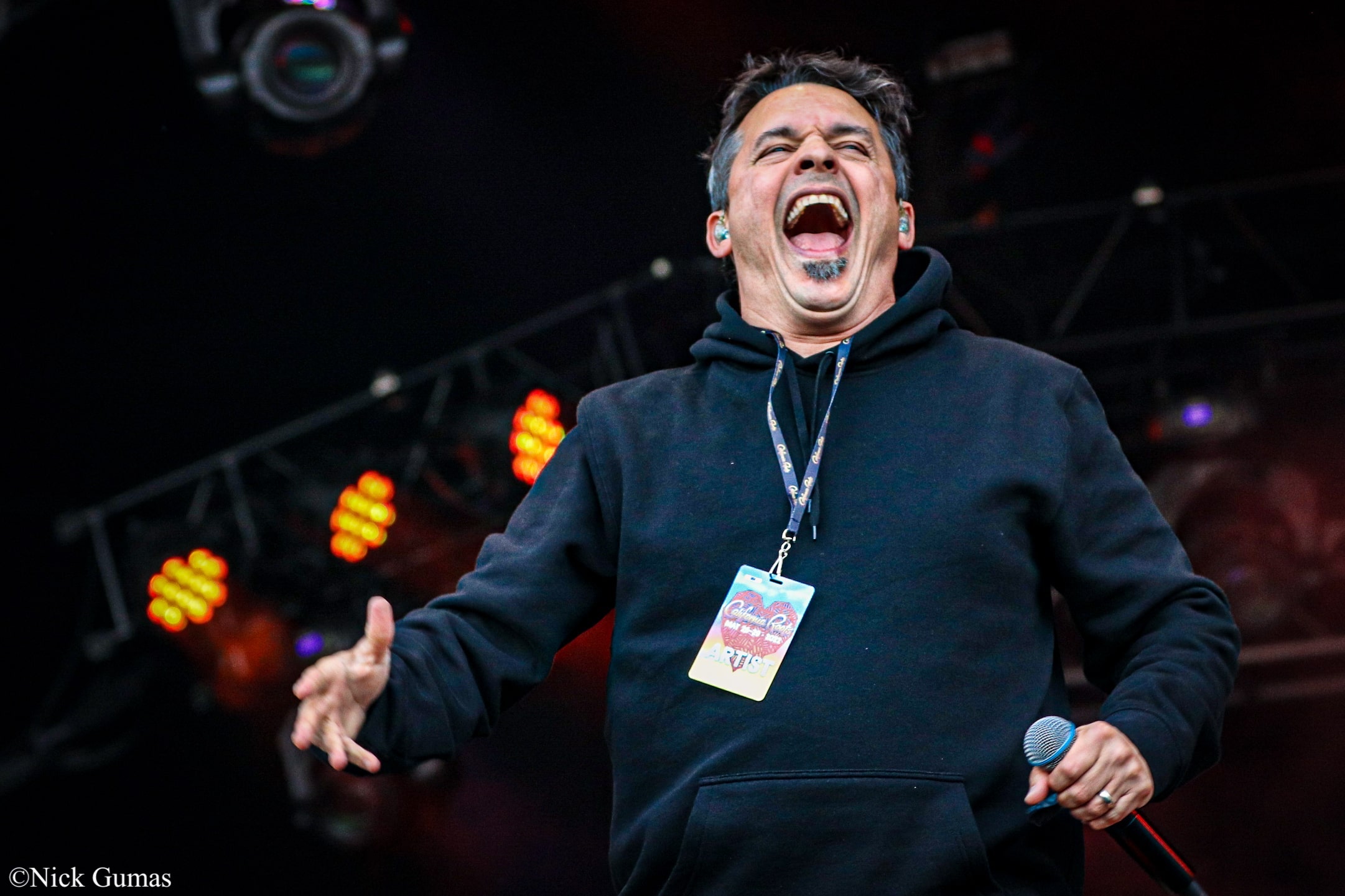
GW: So what’s next for Atmosphere?
SD: I’m going on tour this summer with a band called Iration. The tour is called Sunshine and Summer Nights, and I’m really excited for this tour because I feel like it’s going to give me the opportunity to not only make party with these guys and have cookouts and have a fun time on the road with them, but I feel like they’re going to bring an audience that has no idea, necessarily, who we are, and that, like with Cyprus Hill, similarly, even though it’s a different audience, when you get to play in front of people who don’t know who you are on a regular basis, it really builds your chops. It forces you to have to learn new tricks, how to speak to new people, you know what I’m saying? To me, that’s one of my favorite parts of performing. Doing my own headline tours, oftentimes you can start to realize that everyone that’s here, they’re here for you, and so you just gotta do those songs they want to hear, the ones that they hold dear to themselves, but when you’re playing in front of people that don’t know you, they don’t have any songs that they hold dear to themselves, so you have this opportunity to leave a first impression and to possibly convince them to go look into finding some songs that they may hold dear to themselves.
GW: What’s a question you’ve never gotten in an interview?
SD: Nobody’s ever asked me how much I weigh.
GW: So can you answer that?
SD: Hell no! Why would I answer that? I didn’t know that was a part of the deal.
